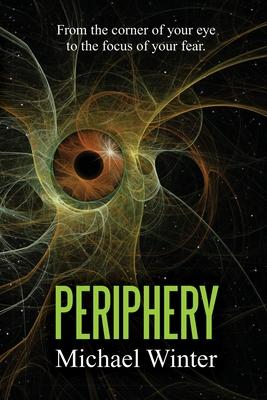From the Corner of Your Eye to the Focus of Your Fear
Tampa Fire Rescue paramedic Andrew Tate thought he had put all of his father's crazy nonsense behind him. Twenty years ago, John Tate had been the respected dean of biology at the University of Tampa, a coolly intellectual researcher and devoted family man. Certainly not the type prone to outbursts of hysterical dementia. Then one summer afternoon he returned home covered in blood, ranting about bizarre creatures hiding in plain sight and declaring his intention to move out in order to protect his wife and son from the horrors now stocking him. For the past two decades, the senior Tate has lived at the periphery of his son's life, making only occasional contact while conducting what he calls "research" into his discovery. It's an uneasy relationship, but Andrew is thankful his deranged father has chosen to remain at arm's length.
All that changes, however, after Andrew is drawn into a hostage standoff. During the course of a tense negation with the captor, he beholds something that seems to validate his father's claims: a living nightmare exposed for all to see and yet strangely camouflaged, both there and not there. It will be the first in a series of unwanted discoveries that will lead Andrew to the realization that a barely-glimpsed world exists at the edge of our awareness, a shadow ecosystem populated by terrifying denizens lurking in the light, awaiting the return of something vast and ancient and malevolent.
Flavored by H.P. Lovecraft's Cthulhu Mythos, Periphery is a family drama at heart with a similar thematic tone as Stephen King's The Shining or Pet Sematary. It also shares the creature-centric sensibilities as The Relic by Douglas Preston and Lincoln Child, The Terror by Dan Simmons, and Who Goes There? by John W. Campbell.
For readers who value originality, vividly realized characters and a tight, captivating plot that pulls back the hem of the ordinary to reveal something darkly fascinating beneath, Periphery is an absolute must.
